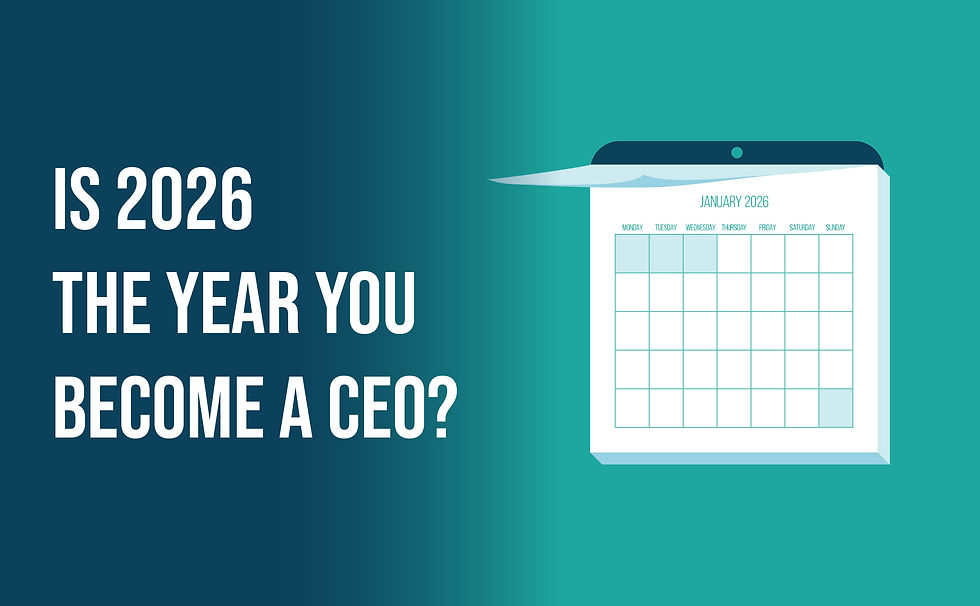What might stop you from getting the job?
- Jun 26, 2025
- 3 min read

One of the most important aspects of executive interview preparation is to ask yourself a tough question: Why might I not be hired for this role?
Have you had an extended gap in your career? Have you changed jobs too frequently? Perhaps you’re transitioning to a new industry or sector and feel you lack the right skills or experience for the executive role?
Whatever the objection might be, you need to look at it from the hiring manager’s perspective. Then, have the ammunition ready to address it in the right way to show you’re still the best candidate for the position.
“It’s not about weaknesses,” explains Executive Interview Coaching founder Richard Elstone. “It’s about having a long, hard look at yourself and figuring out why you’re not going to get the job. It’s a really important part of your interview preparation.”
Step 1: Identify the elephant in the room
Richard says one of the first things he gets his executive interview coaching clients to do is to have an open and honest conversation about the “elephant in the room”.
Maybe you’re worried about lacking sector-specific experience, or there’s a gap on your resume or a fair amount of job-hopping. These are common concerns, but they can be managed with the right strategy and coaching.
“People can work for 25 years and then take a year off just because they want to, they might want to do some personal study or walk the Camino,” says Richard. “Others may need time off to support elderly parents into nursing homes, or to overcome illnesses. There are all sorts of valid reasons for career breaks.”
Many people are worried about how a year or even two years off looks, but Richard says that if it’s explained well without being defensive, hiring managers will understand. “There’s no reason, if you deal with it properly, why you can’t get back to your career after taking time off.”
Getting older can be perceived as a barrier to being hired, especially for executives over 50. But Richard challenges that theory. “The reality is you’re actually more likely to get a job in your 40s and 50s because you have the experience to do it,” he says. “It’s all about selling yourself in the right way.”
Step 2: Address the issues without being defensive
If you’re concerned about these kinds of red flags with the hiring manager, tackle them head on before they arise.
“Some people’s strategies for dealing with the perceived issue amount to nothing more than hoping that the question does not come up. If you’re already nervous in an interview, imagine what this strategy will do to those nerves! My advice is, don’t wait for the question to come up, because if you do that, you’ll probably answer the question in defensive mode,” says Richard. “Instead, deal with it upfront on your own terms. That’s a much better way of addressing it rather than waiting for the question or hoping the question is not going to come up.”
Step 3: Let the hiring manager decide
Many people rule themselves out of an executive opportunity because they feel they don’t have all the necessary experience. Rather than jumping to conclusions and ruling yourself out prematurely, be proactive about any perceived objections that could arise in the interview.
“Really think through your career to come up with some great examples of what you’ve done, then let the hiring manager decide for themselves whether you’re right for the job,” says Richard.
How Executive Interview Coaching can help
With one-on-one coaching sessions, Richard helps clients to confront and navigate all kinds of elephants in the room.
“At the end of the day, it’s important to have people to talk through these concerns with,” he says. “That’s where I come in. I’m here to play devil’s advocate and ask why the hiring manager might not hire you.
“It’s amazing how much experience you do have when you dig under the surface. With the right support from a professional executive interview coach like me to give you the confidence you need, you can land the executive role you desire.”
To find out more about how you can benefit from executive interview coaching, get in touch today.



